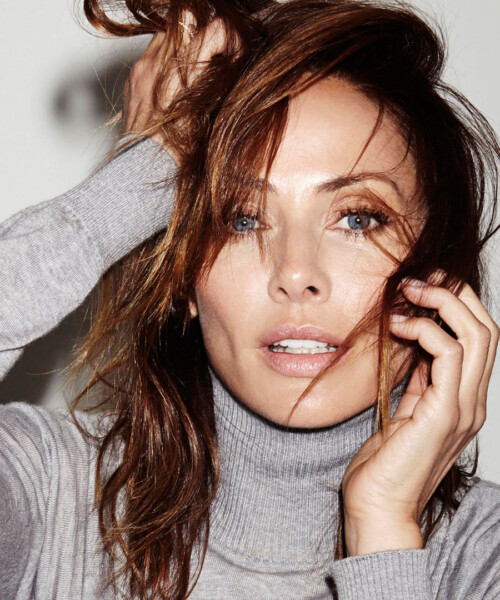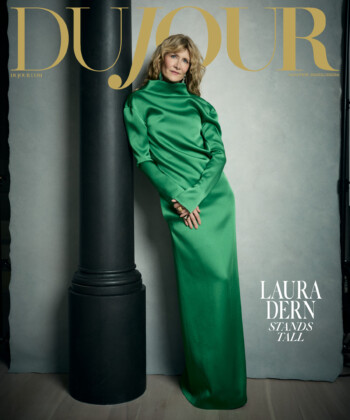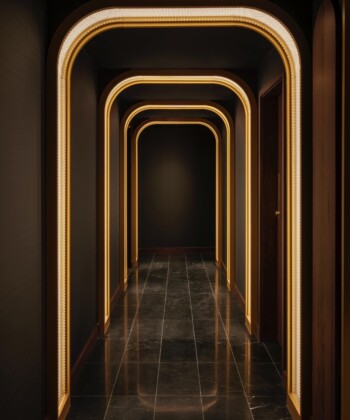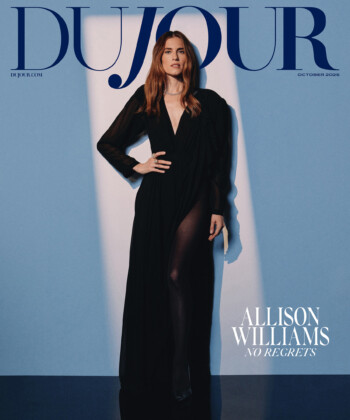The ever-turning time machine of fashion seems to have landed on the ‘90s this summer, and if you spent the last decade or so missing chokers, feathered bangs and platform sandals, your wildest dreams have been granted. Perhaps nothing could quite prove that the decade has once again descended upon us in full force like the reemergence of Natalie Imbruglia—the hoodie-donning girl next door who brought us the hit single “Torn,” in all its angsty “lying naked on the floor” glory.
After a hiatus from the music industry, Imbruglia is returning with a new album called Male, which features twelve covers of songs originally sung exclusively by men. The songs are often surprisingly re-imagined—as in the lyrically-focused revision of Daft Punk’s “Instant Crush,” or the bluegrass-tinged take on The Cure’s “Friday I’m in Love”—or beautifully rendered. It may come as a slight disappointment to some that the album doesn’t make as much of the concept as it could—the songs don’t seem especially chosen for the impact their messages might have when sung by a woman and not a man—but in the end, Imbruglia’s trademark earnest whimsy is as charming as it ever was.

We sat down with her to talk about the new album, the real ‘90s, and how things have changed. And just in case you were wondering, she’s as gorgeous as she ever was.
What has it been like stepping back into the music scene?
I feel like this album is for fans who have grown up with me and are at the same place in their life as me, generally speaking. It’s been a really warm reception coming back to music and people coming up and saying, ‘It’s so nice you’re back!’ And, ‘We grew up with you!’ It’s lovely.
On Male you cover a lot of songs from softer indie favorites—Damien Rice, Iron & Wine, Josh Pyke, Death Cab for Cutie—what pulled you toward these acts?
Well, I intentionally made this album very organic, stripped back, and vocally driven, because I didn’t want to be trying to do something to ‘keep up with the Joneses’ or fit in with what’s trending right now. I wanted to do something classic, so my producer was under strict instructions to have no electronic sounds. I tried to pick songs that stand on their own without being overly produced. They were beautifully written.
How did you decide to cover songs solely by men?
Originally I was just going to do my favorite artists, but then I realized that some of my favorite female artists—I just didn’t want to touch. It felt more like a comparison, whereas when I did songs by men, it was just fun. There was instantly a different interpretation when it was coming from a woman; the way you think and feel about the song is different.
In this cultural moment, it’s hard not to read an album title like Maleas something of a statement.
A lot of my girlfriends say to me, ‘Oh my gosh. You’re so much of a boy in the way that you think.’ I have a very strong personality, and it’s an interesting subject to me—how far can you go being strong as a woman while still being considered feminine? For me, there’s nothing more sexy than being a strong, independent woman who knows what she wants. In the back of my mind there was something kind of cool about my face on an album with the word ‘Male’ on it. I like that. It’s ballsy.
When you think back on that time in the late ‘90s when “Torn” became such a huge hit, what do you think about?
I look at pictures of back then and I’m like, ‘Aww.’ I was just trying to cope with the whole thing as it was happening. It was a lot, but I had a blast. I knew at the time that this might never happen again, career-wise. So I said to myself—you have a choice. You can get bitter about that. Or you can embrace it and think how wonderful it was that this happened. Some people never get the chance to experience that in their careers; I got to travel around the world performing. So for me, everything’s about perspective. I chose to look at it in an incredibly positive way and kept my feet on the ground. My friends are still the same people I’ve had for a very long time, plus some new amazing people I’ve collected along the way.
Have you found that your writing techniques have changed over the years?
More and more I find the music, and then the words come. When the music is there it can bring out a particular emotion that reminds you of something, and that might trigger the story of the song. That way is more fun and less robotic than turning up with a bunch of poems and trying to fit them to music, which I used to do a lot… The more you go on, the more you do to trust yourself. Often it’s just getting out of the way.






































